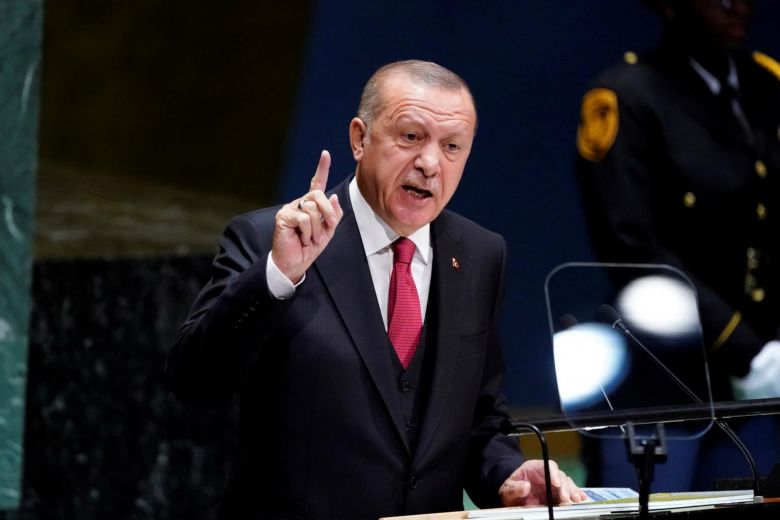Turkey's Erdogan to meet Trump in US over Syria 'safe zone'
Mon 07 Oct 2019, 16:37:24

Turkish President Recep Tayyip Erdogan and US counterpart Donald Trump agreed during a phone call to meet in Washington next month to discuss creating a "safe zone" in northern Syria, the Turkish presidency said Sunday.
Erdogan told Trump of his "frustration over the US military and security bureaucracy's failure to implement the deal" agreed in August to establish a buffer zone on the Turkish border, the presidency said in a statement.
It added that the visit would take place after an invitation from Trump.
There had been expectations in Turkey of a Trump-Erdogan meeting on Syria last month on the sidelines of the UN General Assembly, but it did not take place.
The Turkish leader had raised the temperature on Saturday by warning that Ankara could launch a cross-border offensive "as soon as today, tomorrow", putting pressure on the United States.
Turkish state media also reported on military reinforcements sent to the border with Syria after Erdogan's comments.
Washington has sought to stop any Turkish operation against a US-backed Syrian Kurdish militia viewed by Ankara as a "terrorist" offshoot of Kurdish
militants in Turkey.
militants in Turkey.
The US worked closely with the People's Protection Units (YPG) militia against the Islamic State (IS) group, capturing swathes of territory from the jihadists.
After difficult US-Turkey talks ended with the August agreement, Turkish and American forces held joint ground and air patrols in northern Syria.
However, Turkey accused the US of stalling over the establishment of the "safe zone".
The two leaders discussed the "safe zone" during the call in which Erdogan told Trump it would create the "necessary conditions" for Syrian refugees to return to Syria.
Turkey is hosting over 3.6 million Syrian refugees but there has been a growing public backlash in recent months against their presence in Turkey.
With some Western capitals concerned over any unilateral Turkish operation's impact on the fight against IS jihadists, Erdogan insisted Turkey would take the "necessary precautions" to ensure there was no extremist resurgence in the region.
Turkey twice launched military operations against IS in 2016 and the YPG in 2018, supporting Syrian rebels to take territory in northern Syria.
No Comments For This Post, Be first to write a Comment.
Most viewed from International
Most viewed from World
AIMIM News
Latest Urdu News
Most Viewed
May 26, 2020
Do you think Canada-India relations will improve under New PM Mark Carney?
Latest Videos View All
Like Us
Home
About Us
Advertise With Us
All Polls
Epaper Archives
Privacy Policy
Contact Us
Download Etemaad App
© 2025 Etemaad Daily News, All Rights Reserved.

.jpg)
.jpg)
.jpg)






.jpg)


.jpg)
.jpg)
.jpg)
.jpg)
.jpg)
.jpg)
.jpg)
.jpg)
.jpg)
.jpg)
.jpg)
.jpg)

















